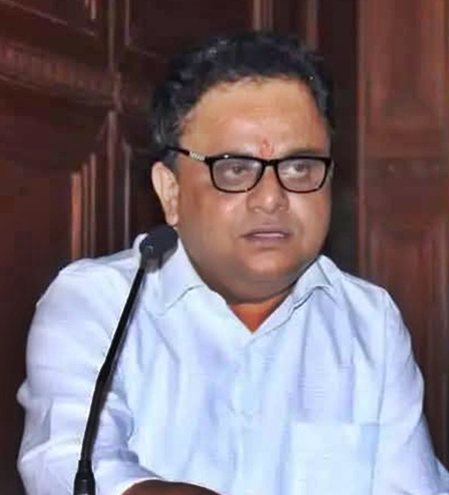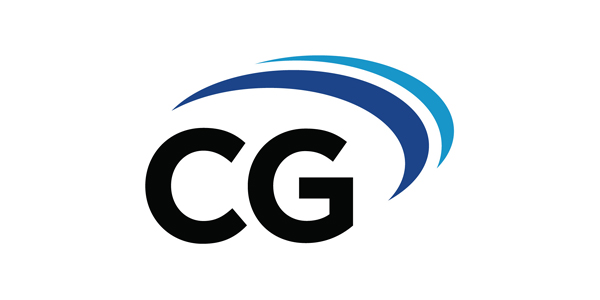By Adam S. Minsky,Anna Moneymaker,Senior Contributor
Copyright forbes

WASHINGTON, DC – JULY 31: U.S. President Donald Trump speaks with Secretary of Education Linda McMahon during an executive order signing ceremony in the Roosevelt Room of the White House on July 31, 2025 in Washington, DC. A national labor union is suing the Trump administration over allegedly blocked or delayed student loan forgiveness. (Photo by Anna Moneymaker/Getty Images)
Getty Images
The Trump administation is facing a potential class action lawsuit this week over blocked, denied, or delayed student loan forgiveness. And how this legal battle moves forward could have profound financial implications for hundreds of thousands of student loan borrowers.
The latest action was initiated by the American Federation of Teachers, one of the nation’s largest teachers unions. The AFT filed an amended complaint on Tuesday seeking to expand the claims and allegations outlined in its original lawsuit filed in March over stalled applications for income-driven repayment plans and Public Service Loan Forgiveness, or PSLF. The amended complaint also seeks class action status for covered student loan borrowers.
Here’s what to know about this latest legal challenge, and why it’s so important for borrowers pursuing affordable payments and student loan forgiveness.
What The AFT’s Prior Student Loan Forgiveness Lawsuit Was About
The AFT’s original lawsuit that it filed against the Trump administration in March concerned the temporary shutdown of the IDR application system and the ensuing backlog of applications that, the union argued, effectively prevented borrowers from enrolling in repayment plans that they are legally entitled to access under federal law. IDR plans allow borrowers to make payments based on their income and family size, with the possibility of student loan forgiveness after 20 or 25 years in repayment. The Trump administration had argued that a temporary shutdown of the IDR application system was necessary in response to a court decision in a separate legal challenge over the SAVE plan, one of four current IDR options. But the AFT disputed this.
The AFT had also argued in its original suit that the Department of Education’s IDR shutdown and subsequent application backlog was effectively preventing borrowers from accessing student loan forgiveness through the PSLF program. Enrolling in an IDR plan is usually required for borrowers pursuing PSLF. And the department had encouraged borrowers stuck in the SAVE plan forbearance to utilize the PSLF Buyback program to qualify for student loan forgiveness, if they were eligible, but the PSLF Buyback program was seemingly facing its own backlog of applications. PSLF Buyback allows borrowers to make a lump sum payment so that certain prior non-qualifying periods of deferment or forbearance can count toward loan forgiveness.
MORE FOR YOU
After the initial suit was filed, the department subsequently restored the IDR application system. The AFT and the department then reached a temporary agreement whereby the department would file monthly status reports with the court, providing data on IDR application and PSLF Buyback processing. This would allow the AFT, and the public at large, to monitor the department’s progress.
What The New AFT Student Loan Forgiveness Class Action Complaint Is About
On Tuesday, the AFT filed an amended complaint, which is essentially an updated lawsuit intended to replace the original challenge. In its amended complaint, the AFT argues that the Department of Education’s progress in processing IDR applications since the spring has been inadequate.
“As of July 31, 2025, there are 1,386,406 pending applications, but the Department’s processing rate and the rate of new applications being filed results in only an average net decrease of 87,823 applications per month,” reads the complaint. “At this rate, borrowers may have to wait years to receive the benefits that Congress directed should be provided to them.”
The AFT also noted that despite steadily processing PSLF Buyback applications, the backlog associated with the program has actually increased, leaving borrowers stuck in student loan forgiveness limbo.
“As of July 31, 2025, there are 72,730 pending Buyback applications,” said the AFT in the amended Complaint. “From May to July, the Department received an average of 10,743 new applications, but only processed an average of 2,939.” The complaint continued, “For each month during which it reported, the Department saw a net increase in the number of pending Buyback applications, and so is clearly not making meaningful progress on processing these borrowers’ applications.”
In addition to arguing that the department’s progress in processing IDR and PSLF Buyback applications is inadequate, the AFT expanded its allegations regarding blocked or denied student loan forgiveness to encompass several new claims that were not present in its original complaint. These include:
Allegations that the department is about to issue, or has already issued, mass denials of 460,000 IDR applications, primarily for borrowers who had applied for SAVE or selected an option on the application that allows their loan servicer to pick their IDR plan based on the option that offers them the lowest monthly payment. The AFT argues that these mass denials will create the impression that the department has made significant progress in reducing the IDR application backlog, but these borrowers will need to submit new applications, adding themselves back to the backlog and potentially putting them at the back of the queue.
Allegations that the department is illegally blocking student loan forgiveness under the IBR plan. The department announced via a website update earlier this summer that IBR loan forgiveness was temporarily suspended so that the department could update its systems to comply with an earlier court order involving the SAVE plan and ensure that payments were accurately counted. But the AFT argues that no court has blocked IBR student loan forgiveness, and under federal law, the department has a “mandatory” duty to offer IBR and discharge the debt for borrowers who reach the 20- or 25-year threshold for student loan forgiveness. The AFT argues that the department is also illegally denying student loan forgiveness under the ICR and PAYE plans, as well.
Allegations that the department is unlawfully denying borrowers student loan forgiveness under PSLF, specifically by failing to process PSLF Buyback applications and other PSLF-related forms.
Major Financial Implications Of Denied Student Loan Forgiveness
The AFT also points out in its amended complaint that borrowers who qualify for IDR loan forgiveness, but are unable to get a discharge because of the ongoing backlogs, pauses, and delays, could face substantial financial consequences. That’s because starting in January, IDR loan forgiveness reverts to being treated as taxable “income” again after a four year hiatus under the American Rescue Plan Act of 2023. Congressional Republicans declined to extend that tax relief in the One, Big, Beautiful Bill Act that President Trump signed in July.
The AFT’s amended complaint references several individual Plaintiffs who have already reached the point where they should qualify for student loan forgiveness under IDR plans, but have not received a discharge. One such student loan borrower “owes approximately $115,000 in federal student loan debt, which she has been paying for over 20 years without delinquency or default,” reads the Complaint. In July, a Department of Education official confirmed that she “had satisfied her repayment obligations and that her loans were eligible to be cancelled through the IDR program, but the Department has not cancelled her loans.”
“Due to the Department’s unlawful withholding of these statutory rights, Named Plaintiffs and the millions of borrowers whom they represent are being trapped in debt, and many will face enormous tax liability if the Department does not follow the law and cancel their loans before January 1, 2026,” reads the amended Complaint.
Class Action Status Could Allow For Nationwide Injunction In Student Loan Forgiveness Dispute
In addition to expanding the scope of the original lawsuit, the AFT’s amended complaint also seeks class action status. A class action is a type of lawsuit filed on behalf of a group of similarly situated individuals, so that these individuals don’t have each file a separate lawsuit based on a substantially similar set of facts. The AFT’s amended complaint references five distinct “classes” of student loan borrowers:
“IDR Application Class: All borrowers with a pending IDR application.
IDR Denial Class: All borrowers who have had their IDR application denied because (1) their IBR application was denied after July 4, 2025 due to an asserted lack of a partial financial hardship or (2) the borrower elected for the lowest monthly repayment option on the Office of Management & Budget’s form.
IBR Cancellation Class: All borrowers who have made the required payments for loan cancellation under the IBR program but have not yet received cancellation.
ICR Cancellation Class: All borrowers who have made the required payments for loan cancellation under the ICR or PAYE plans but have not yet received cancellation.
PSLF Forgiveness Class: All borrowers who have satisfied the public service requirements of PSLF but whose loans have not been forgiven because the Department has not processed their Buyback applications.”
The AFT is likely seeking class action status so that the union can pursue a nationwide injunction, which is a court order that would broadly apply across the country (not just in a specific jurisdiction). The Supreme Court recently limited the circumstances in which a challenger can request a nationwide injunction. But class action lawsuits remain one such avenue.
Importantly, individual student loan borrowers cannot, and do not need to, affirmatively seek to join the lawsuit to benefit from a favorable outcome. If the court approves the legal challenge for class action status and ultimately issues a favorable decision or order, all borrowers who meet the class criteria would be impacted automatically.
Student Loan Forgiveness Relief Won’t Be Instant
While the AFT is expected to swiftly seek injunctive relief following the filing of its amended complaint, borrowers should know that relief will not be instant. The Department of Education must be given time to respond to any motion for an injunction, and the court will then likely hold a hearing later this fall on the union’s allegations about student loan forgiveness being blocked or delayed under IDR and PSLF. Only after that will the court issue a decision.
Editorial StandardsReprints & Permissions



